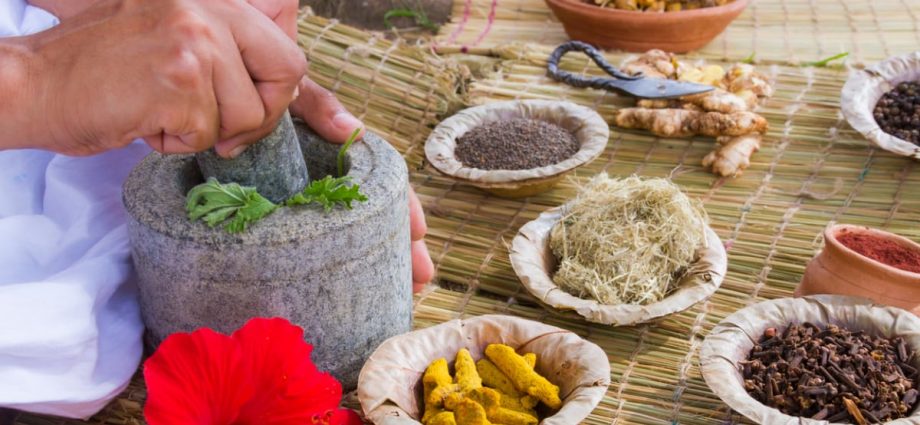
Herbal medicine industry bodies in India are looking to boost sales and acceptance of such traditional medicine amid India’s big push to become a hub for alternative therapies.
RISE IN POPULARITY DURING PANDEMIC
The COVID-19 pandemic has given the alternative medicine industry a boost.
Ayurvedic drug companies recorded more than US$18 billion in sales in 2020, four times the amount in 2014.
“During the COVID-19 pandemic, people saw that modern medicine wasn’t useful for everyone. There was a trend of people drinking herbal concoctions that made people them feel better, and it was so convenient. That made people trust herbal remedies,” said Ms Rajni Jain, co-founder of the Sansthanam Abhaydanam Ayurvedic Hospital.
As a result of the pandemic, her ayurvedic orchard has become widely popular, and now she and her team are considering manufacturing their own medicines in a bid to capitalise on industry-wide demand.
The growth of the alternative medicine industry has come on the back of a concerted effort by the Indian government to expand the sector.
It created regulatory frameworks, offers tax incentives and provides research funding.
The establishment of a dedicated ministry to oversee all things alternative medicines in 2014 inspired confidence among many first-time buyers and reduced counterfeit products prescribed by non-certified practitioners that had ailed the industry for decades, industry players said.
Mr Milan Mehta, secretary of the Ayurvedic Drug Manufacturers Association said gone are the days when traditional medicine meant questionable loose powder.
“That may be a market at the village level. But at urban level and export – it’s given in proper packaging with adherence to latest rules and regulations required by the regulators of India and abroad,” he said.
IMPROVING STANDARDS
Indian’s industry bodies want manufacturers to adhere to the best practices prescribed by the World Health Organization (WHO) to boost exports.
They regard the WHO’s stamp of approval as crucial for the international uptake of traditional medicine.
The international health body is also keen to widen the use of traditional medicine.
In April this year, the global health body’s director-general Dr Tedros Ghebreyesus said: “As yet, the contribution of traditional medicine towards national health systems is not fully realised. This global centre for traditional medicine will be a powerful vehicle for taking their journey forward.”
WHO has also recognised India’s role in the world of alternative medicine – it worked with the government to establish the country as the herbal medicine capital of the world.
In March this year, it set up the WHO Global Centre for Traditional Medicine in Prime Minister Narendra Modi’s home state Gujarat.
Despite the growing recognition and acceptance of ayurvedic medicine, practitioners of more conventional medicine are sceptical, amid lingering concerns over quality.
Many say substituting traditional medicine for modern medicine could lead to a public health crisis.
The reality though is that by the WHO’s estimate, around 80 per cent of people around the world already use traditional medicine.
Authorities hope that strict regulation could be what will ensure the quality of alternative medicines and minimise health risks.

